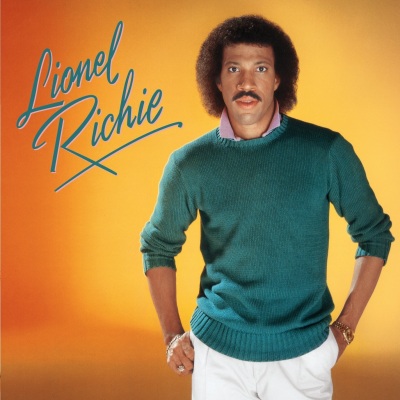
Lionel Richie
by Stephen Thomas ErlewineLionel Richie's solo career began while he was still in the Commodores, as he wrote and sang (as a duet with Diana Ross) the theme to the Brooke Shields romance Endless Love, which became a bigger hit than any of the group's singles, thereby setting the stage for his departure and his 1982 self-titled solo debut. He wasn't working in unfamiliar territory, or with new musicians. The Commodores decided to work as their own band, so their producer, James Anthony Carmichael, was able to devote his energy to working on Richie's album. Using the pop-crossover ballad style of "Endless Love," "Three Times a Lady," and "Easy" as their template, the duo turned Lionel Richie into a sleek, state-of-the-art record that, at its best, provides some irresistible pop pleasures. The key to its success -- and the reason it was scorned by some Commodores fans -- is that Richie doesn't even make a pretense of funk here, leaving behind the loose, elastic grooves of his previous bands (a move that makes sense, since his voice never suited that style particularly well), choosing to concentrate on ballads and sparkly mid-tempo pop, peppered with a few stylish dance grooves. The ballads, of course, provided two big hits with "My Love" and "Truly," two numbers that illustrate that he was moving ever-closer to mainstream pop, since these are unapologetic AOR slow-dance tunes. The other big hit, "You Are," is an effervescent, wonderful pop tune that showcases Richie at his sunniest; it's one of his greatest singles. Throughout the first part of the record, the dance numbers are served up and they're very good -- "Serves You Right" has a shiny, propulsive groove, while "Tell Me" jams nicely. After "You Are," the record bogs down with a couple of ballads that are on the wrong side of adult contemporary -- too formless, too hookless to really catch hold -- but they don't hurt the first seven songs, which form a dynamic mainstream pop-soul record, one of the best the early '80s had to offer. It's the sound of Lionel Richie finding his solo voice, and, the next time out, he knew how to use it even better than he does here. [The 2003 reissue of Lionel Richie includes two bonus tracks: a solo demo of "Endless Love" which not only fits perfectly with this record, but is less cloying, and an instrumental of "You Are" whose primary worth is to hear the detail and expertise in the production Richie and Carmichael assembled.]
